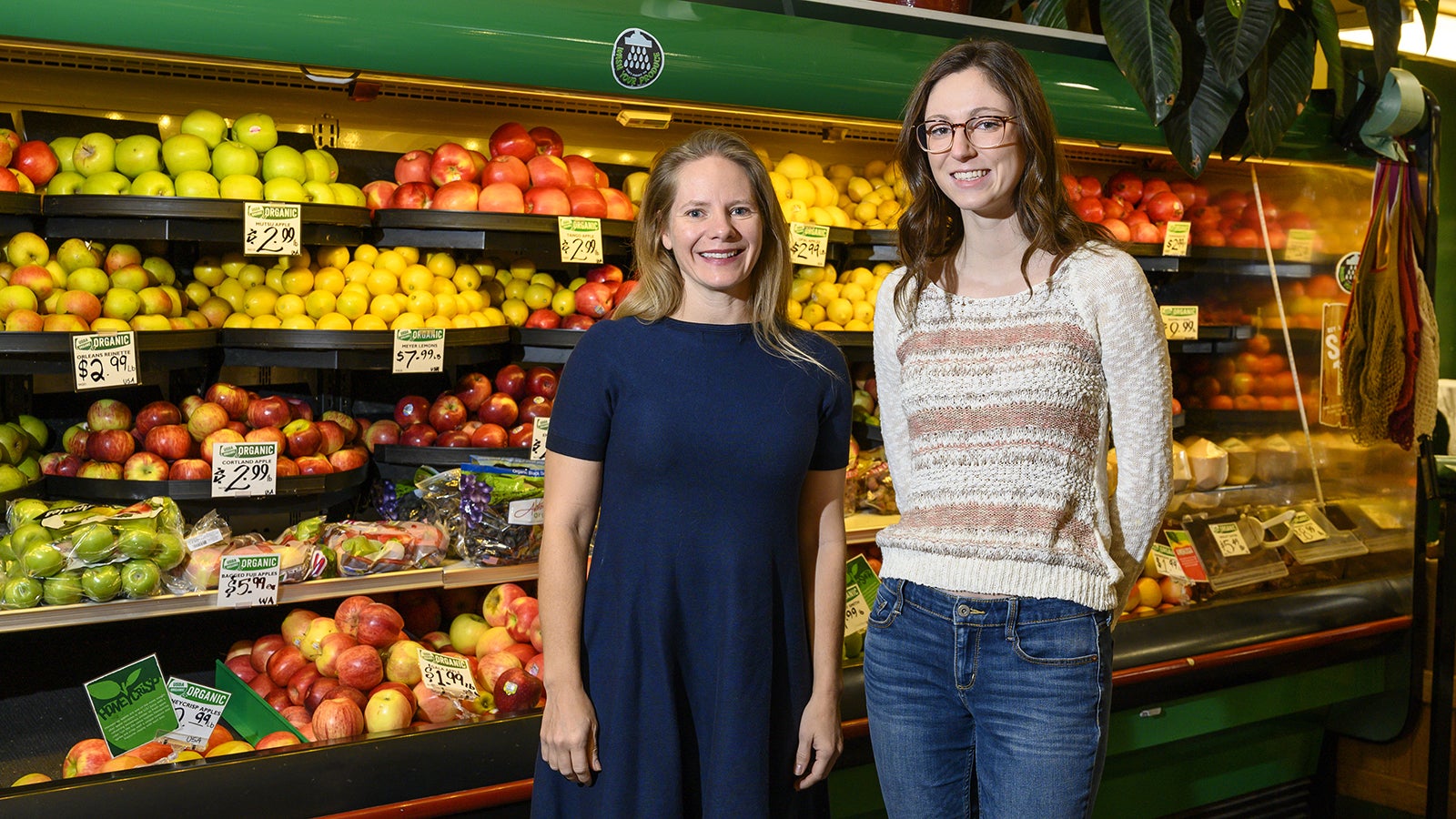
Organic versus conventional foods: are they really better for people’s health? Are all organic foods created equal, and if not, which do we pick and why do we pick them? These seemingly simple questions are fraught with personal and political beliefs and values. Yet the voice of reason that is often missing from the conversation is science.
One explanation for this knowledge gap is that studies involving dietary intervention (i.e., replacing conventionally produced foods with organic foods) usually are only conducted for one- to two-week periods on small populations. This isn’t long enough to provide conclusive evidence that a test group became healthier on an organic diet.
That’s why Dr. Cynthia Curl, an assistant professor in Boise State’s Department of Community and Environmental Health, has conducted what is believed to be the first ever long-term diet intervention study on the effects of organic produce on pregnant women. Results of the Treasure Valley study revealed that adding organic produce to an individual’s diet, as compared to conventional produce, significantly reduced exposure to pyrethroid insecticides – that is, insecticides that are neurotoxic to insects, as well as humans, in large enough doses.
For six months, spanning 20 women’s second and third trimesters, Curl’s two study groups received weekly deliveries of fresh fruits and vegetables. One group received organic produce while the other received conventional produce. Weekly urine samples were collected from both groups and analyzed by the Center for Disease Control. The results showed that women consuming organic produce had significantly lower pesticide metabolites which are compounds that are formed when our bodies metabolize pesticides.
“This research is novel because it’s also the first study done in pregnant women, and there’s a lot of research showing that time in-utero is a sensitive time for development,” said Curl. “So if we were to look for a health effect from decreasing pesticide exposure, one of the places we might see it – if it exists – is in this population.”
Curl’s study proves the feasibility of conducting a long-term organic diet intervention study among pregnant women. She believes that by following this study’s parameters with a much larger test group, and then monitoring the health and development of the children after birth, it would be possible to conclusively answer the question of whether there is a measurable health benefit to children if their mothers consume organic, rather than conventional, food during pregnancy.

The study also demonstrates that it is not necessary to consume a fully organic diet to experience a significant change in pesticide exposure. By supplementing participants’ diets with organic fruits and vegetables, the authors better imitated how many people actually consume organic food – as a part of their diet rather than the whole.
The research was supported by a team of Boise State undergraduate students, including Jessica Porter, Ian Penwell, Rachel Phinney, Justin Nelson, Hope Murray, Jonathan Wheatley, Makaela Bournazian, Dana Kerins and Abigail Thomas.
The team also partnered with the Central District Health Department’s Women, Infants and Children program for participant recruitment; Grasmick Produce and Idaho’s Bounty for the produce; Wild Safari
Deliveries to deliver the food; and Boise State’s Office of Information Technology for the novel development of tailored food diary apps.
Research reported in this publication was supported by Grant UL1 TR002319 from the NIH National Center for Advancing Translational Sciences through the Clinical and Translational Science Awards Program (CTSA) and by the National Institute of Environmental Health Sciences of the National Institutes of Health under Award Number K01ES028745. The food for this study was purchased through a Boise State Pony Up Crowdfunding campaign.